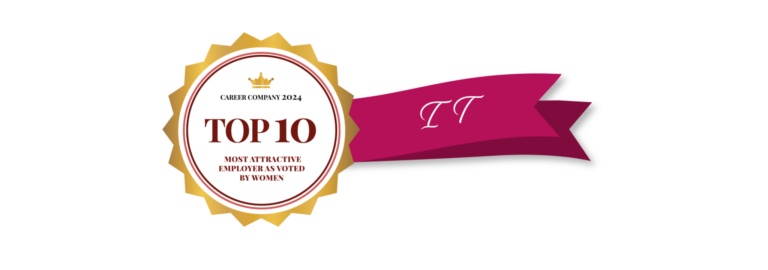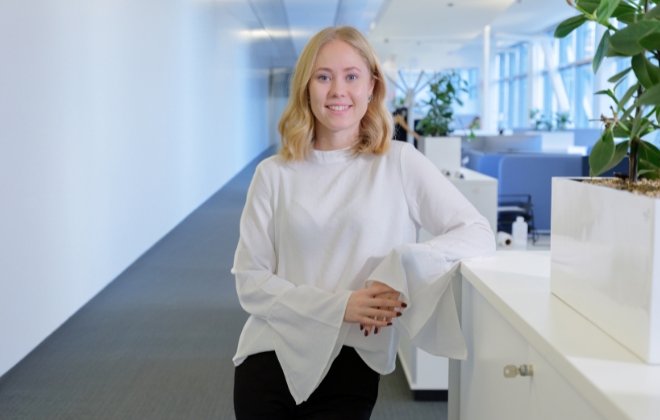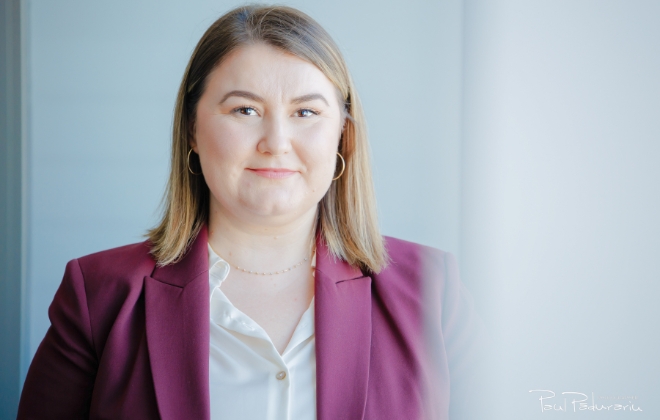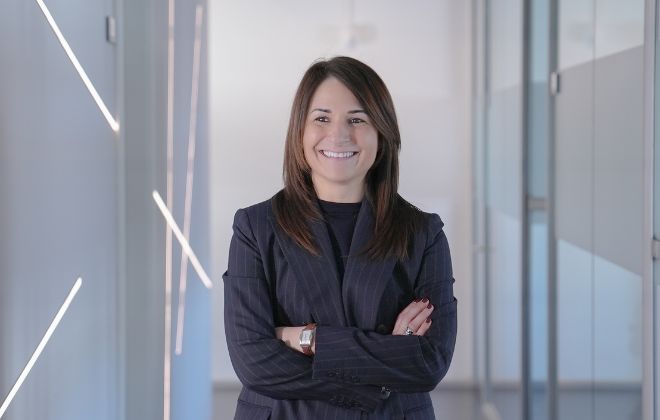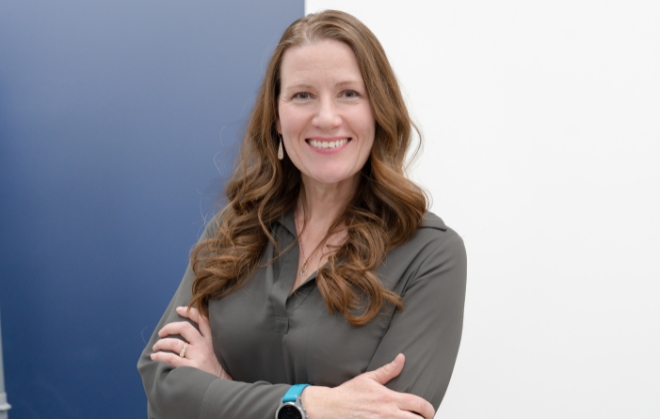Interview with Linda Schneider: “I work in an industry of the future. Antivirals have gotten a lot of attention with the pandemic.”
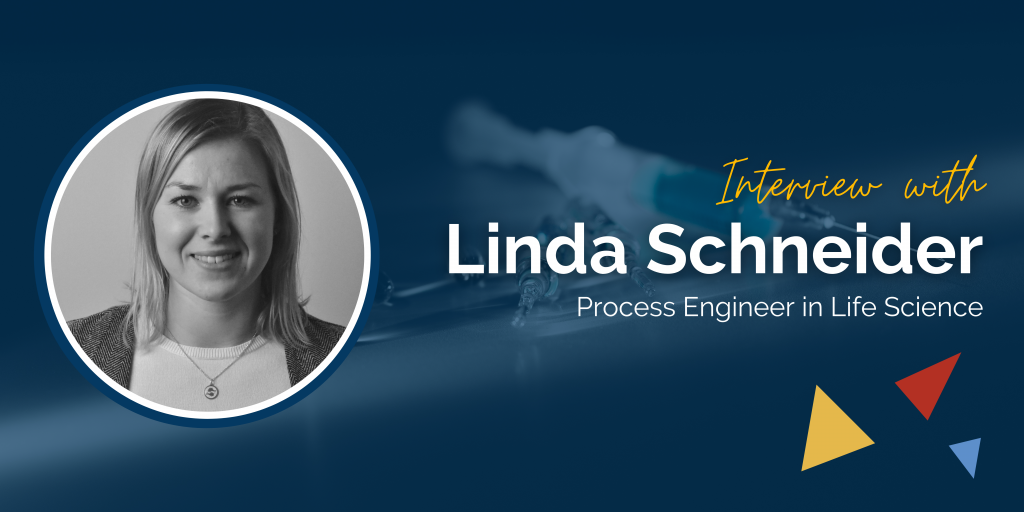
Linda works as a process engineer in Life Science at ALTEN. She has worked in the pharmaceutical industry for 7 years and is currently working in the production section of AstraZeneca. Problem solving is a key attribute in her job role and the most enjoyable part is that the days can be very varied. For Linda and her colleagues, the pandemic has been a challenging time, with oral hygiene requirements and not being able to be physically on site 100% of the time.
You work as a process engineer in Life Science, what does that mean?
– It means that I work in a group of process engineers who act as a support function to production. I help with, for example, deviation investigations, participate in investment projects including testing of new equipment used in production, improvement projects and run technical trials for process improvements. Validation and qualification activities are often involved as a process engineer.
– We also participate in inspections of the activity/product by authorities and companies. I always adhere to a framework called GMP (Good Manufacturing Practices) to ensure the quality of the medicines being manufactured. This is used worldwide and permeates everything you do when it comes to pharmaceutical production activities.
“Problem solving is definitely my strongest attribute and what I feel I benefit most from in my role as a process engineer!”
What is your mission right now?
– I have just changed assignment and department within the production section at AstraZeneca, Gärtuna in Södertälje. I have been working in the new group for about 2 months, so I am still learning the way of working and how the specific products work and all the process steps. I am also involved in a couple of projects: one related to equipment and another for the implementation of a new document management system related to validation and qualification. I work daily to investigate deviations cross-functionally and my perspective is process-technical with a focus on what can affect product quality if something happens. Generally speaking, you deal with a lot of documentation in the pharmaceutical industry because everything you do is governed by tough regulations for the product to get into a human.
What is your background?
– I studied engineering biology at Linköping University/Linköping University of Technology. I have been working in the pharmaceutical industry since I graduated 7.5 years ago. Before joining ALTEN, I worked in biological production of pharmaceuticals at a so-called contract manufacturer. I grew up in a mill town in Östergötland, then moved to Södertälje for work and after that it was Stockholm where I now live with my partner.
“We’ve had to work with face masks on site pretty much the whole time since the pandemic started until today really, it was a change and has been hard.”
What qualities of yours do you find most useful in your expertise?
– Problem-solving is definitely the one that I feel I benefit from the most, and also having a sense of the production flow as a whole. Being outgoing and service-minded because you work with other functions within the company every day and not being afraid to ask for help from more experienced colleagues/operators is also important for success as a process engineer.
Has the pandemic affected your work?
– The pandemic has had an impact mainly because in my mission we were not allowed to be on site more than 50-60% of the time, which is still considered a lot. Since I work in the unstoppable production, my team on the mission could not work from home 100%. We have had to work with face masks on site pretty much the whole time since the pandemic started until today really, it was a change and has been hard.
What is the most fun part of your job?
– It is both fun and sometimes frustrating that a day can be very varied.
What is most challenging?
– The fact that there can be urgent problems in production that have to be solved immediately/have to put all resources into solving the problem. Then you may have to put everything else aside.
Can you tell us about a project/ task you are proud of?
– When I was working on biological production in bioreactor of protein drugs, it was always very nice when a cultivation was finished after months of work and planning. I was then working with processes that were not commercial and not “ready-made”, which meant that there were never any guarantees of outcomes such as how much product (“medicine”) the cells would produce. In one aspect, there never is because you are working with biological systems and not a machine. It was always a victory when everything went well from start to finish for my group’s part of the process.
What do you do when you’re not working?
– Hanging out with my partner, dancing bachata/salsa, singing in the choir I recently joined or going to the gym. Chilling at home on the couch to a show is nice too. Generally I like historical/costume TV series like “Outlander” or “The Crown”. Then I think the Swedish series “Tunna blå linjen” from this year is good. I like “Black Mirror” too, it is quite dystopian, but it makes you think about technology development and moral issues among others.
What do you see in the future in your field?
– It’s an industry of the future, that much I can say. Antivirals have received a lot of attention with the pandemic, so I think a lot will happen there. There is so much to do so I think there will be a lot of jobs in the future. If you take the pharmaceutical industry in general, there will always be people who are sick and medicines that need to be developed and researched.
Interested in joining the ALTEN Life Science team?
Click here to see our current vacancies!







